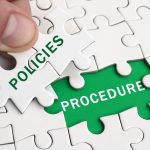
Here’s what you need to know about Money Laundering and IWT
In our previous posts, we have talked about the different ways criminals launder their illicit proceeds. It could be cryptocurrencies, precious stones and metals or even wildlife! Yes you heard that right. Illegal wildlife trading (IWT) has been a problem for the longest time now. It involves trading of live animals, fish or plants, products made using them, their skin, or parts derived from them. This practice is not only harmful and unsustainable, but also will result in contributing to extinction of endangered species (a simple image search can tell you a lot). Endangered wildlife, sea animals and plants are extremely rare to find and that increases their monetary value, which makes it one of the primary reasons for criminals to unlawfully trade them. They engage in trading unique leathers, fur, performance enhancing drugs to luxury goods derived using wildlife. The World Economic Forum valued this crime as the fourth most lucrative crime in the world, creating a revenue of around 23 billion.
The FATF released a report last month regarding IWT in an effort to trace these traders and their financial trails to stop them from laundering money. According to the report, “IWT is a major transactional organised crime, which generates billions of criminal proceeds each year. IWT fuels corruption, threatens biodiversity, and can have a significant negative impact on public health and the economy. To move, hide and launder their proceeds, wildlife traffickers exploit weaknesses in the financial and non-financial sectors, enabling further wildlife crimes and damaging financial integrity. Despite this, jurisdictions rarely investigate the financial trail left by this crime.” This report focuses on the money laundered with the help of these wildlife crimes by conducting a study based on a number of jurisdictions. The FATF highlights the fact that with digitisation and use of virtual marketplaces to trade illegal wildlife, this has become a global issue and not just a local crime. The report proposes how the FATF standards could be implemented by jurisdictions in an effort to combat money laundering through IWT.
Following the money and tracking the financial trails is one of the steps and a great way to curb this problem because criminals often rely on corruption, tax frauds, using online payment platforms etc. to conceal their proceeds. This would help identify the people responsible for investing money into this crime and the networks they are associated with. In most cases, such networks are involved in a number of other offences as well to hide their tracks and widen their criminal web. Detecting one of these networks or financiers may lead to knocking down other acts of corruption, fraud and associated financial crimes.
Providing necessary information and training regulators of their respective jurisdiction is imperative to ensure that they are aware about IWT and take action towards fighting this crime. Money laundering statutes should include IWT in their list of offences to conduct further investigation and pursue these offences.
Risk assessment related to money laundering and IWT by financial institutions and organisations that deal with wildlife and taking appropriate steps to counter this and manage such risks has been proposed by the report. With upcoming payment technologies and easing due diligence measures, it has become easier for criminals to launder their proceeds all over the world. Tracking them and regularly monitoring the cash flow can prove to be cooperative using the list of red flags provided by the FATF in their report along with illustrative analysis of similar situations that may arise with regard to IWT.
Like all other crimes, this is also committed by creating a supply chain. Enquiring about it and performing due diligence by using regulatory technology to break this chain and preventing such crimes at the root would stop illegal wildlife trading from making its way into our homes in the form of high quality supplements, trending fashion or even home décor/furniture. Regulators have a responsibility to investigate, but as consumers we also have the responsibility to ask questions about what we choose to purchase.
Hope you enjoyed this post!
Please note that all opinions made on this blog should be treated as a guide and not legal advice.





